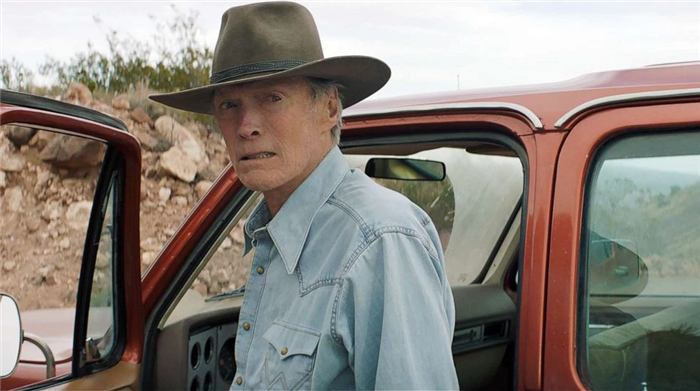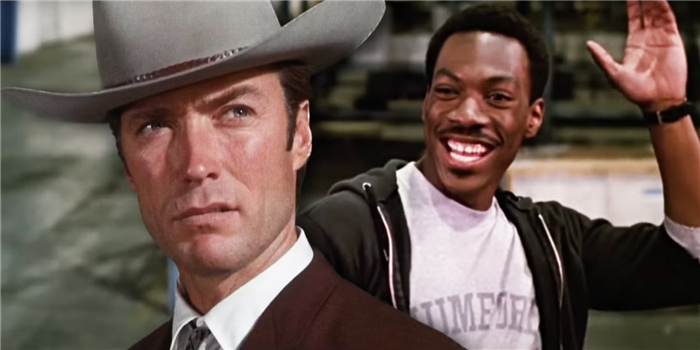Martin Scorsese rejected the opportunity to direct an 80s film staple thanks to an old Clint Eastwood movie. Considered to be a multi-talented vanguard of cinema entertainment, Scorsese has maintained a distinguished record of filmography that dates back to the 50s and includes directed and/or producing credits on essential movies like Taxi Driver (1976), The Last Temptation of Christ (1988), Goodfellas (1990), The Wolf of Wall Street (2013), and so many more. His history on big, and sometimes small, screens is characterized by an identifiable, signature style and the tendency to garner incredible acclaim that holds true through the decades.
His place in the entertainment industry is so prominent, it begs the question of how big-name movies Scorsese almost directed or produced would have turned out had he taken a chance on them. Movies like 2019’s widely-acclaimed Joker and Steven Spielberg’s phenomenal Schindler’s List almost got the Scorsese touch before they were turned away for varying reasons. Scorsese quite nearly got his hands on 1984’s highest grossing movie in the world (via Box Office Mojo) before he passed up on it – and as it turns out, the fault was on Clint Eastwood for the massive missed opportunity.

Martin Scorsese Turned Down Beverly Hills Cop For Being Too Much Like Coogan’s Bluff
The 1968 Clint Eastwood Movie Also Followed A Fish-Out-Of-Water Cop
Of the many scripts that fell on Scorsese’s lap in the 80s was the script for Beverly Hills Cop, but it failed to impress him enough to take it on. Following Eddie Murphy’s lead character, Detroit detective Axel Foley, Beverly Hills Cop was a buddy cop comedy centered on solving the murder of Axel’s best friend. Despite its exciting, California-based premise, its sharp dialogue, and its cheeky, complementing humor, Beverly Hills Cop was rejected by Scorsese for being too similar to Don Siegal’s 1968 crime thriller starring Clint Eastwood, Coogan’s Bluff.
Per Martin Scorsese: A Biography by Vincent LoBrutto, Scorsese was actually bewildered by Beverly Hills Cop; when he was told it was “a fish out of water” story about an out-of-town cop who ventures to another state, Scorsese couldn’t understand how it differed from Coogan’s Bluff. Overall, Coogan’s Bluff chronicled a similar narrative, where Coogan (Eastwood) trekked to New York to apprehend a fugitive wanted for murder, but barring that, the movies didn’t really compare. Beverly Hills Cop was a more mainstream action comedy that developed into a Beverly Hills Cop franchise, whereas Coogan’s Bluff was more of a cool hidden gem that operated on Western influences and striking visuals.

Scorsese Made Another Fish-Out-Of-Water Comedy Instead
The Director’s Next Movie Was After Hours
The rejection of Beverly Hills Cop is eye-opening, not only because it turned out to be a massive hit, but because Scorsese ended up making another fish-out-of-water comedy anyway. About a year after Beverly Hills Cop’s $15 million debut (via The Numbers), Scorsese released the Griffin Dune-fronted comedy thriller, After Hours. While After Hours did not follow the exploits of lawmen like Coogan’s Bluff or Beverly Hills Cop, it did tell the story of data processor Paul Hackett, who became a fish out of water after getting lost in New York City’s Soho district.
Comparatively, After Hours turned out to be way less of a moneymaker than Beverly Hills Cop, which marks a major misfire for the lauded director. Raking in just $10 million (via Box Office Mojo), After Hours could be regarded by some to be a considerable film fail for Scorsese. For others, After Hours is considered vastly underrated and a good move on Martin Scorsese’s behalf, which is an indicator that the experienced director may have known what he was doing all along.

Leave a Reply